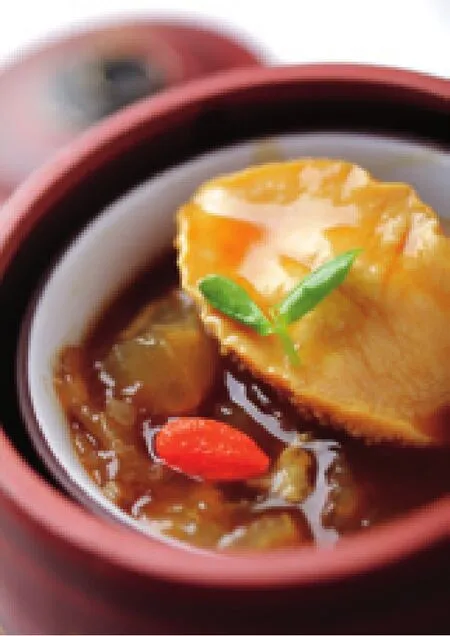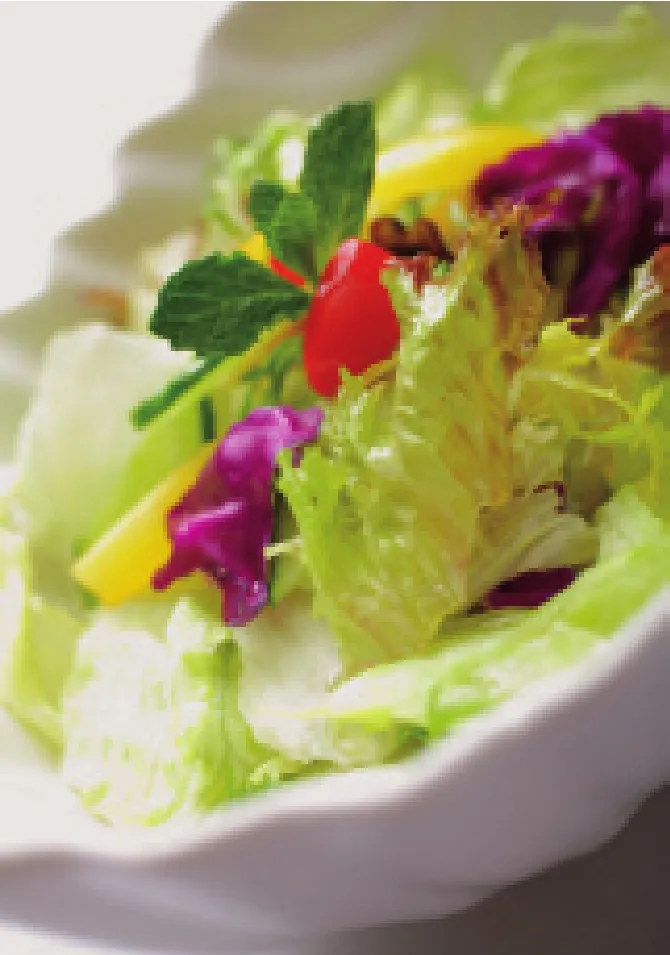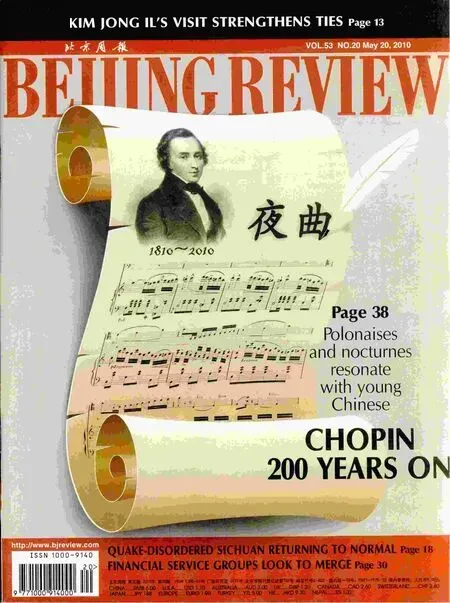Green Restaurant: An Ancient Touch of Chinese Herbal Food
(By Ambra Schillirò)
Green Restaurant: An Ancient Touch of Chinese Herbal Food
(By Ambra Schillirò)
The first time I entered the restaurant Green, inside the five-star Radegast Lake View Hotel in Chongwen District of Beijing, I was incredibly surprised. All around were red lights, a room reminiscent of the splendor of ancient China and simply delicious herbal cuisine.
When a foreigner arrives at a Chinese restaurant in Beijing, he or she may not know what to expect. Smells, tastes and traditions differing from Western ones are waiting and a tradition of thousands of years is ready to be seized.
The traditional Peking dishes, in particular, belong to one of “Four Famous Cuisines,” the Shandong Lu, which is the largest because it is the oldest. You can taste the traditional Chinese cuisine in few places in Beijing today—and the restaurant Green is one of them.
Green is a luxurious and extremely health conscious place. The priority within this place is the health of the clients. The owner of the restaurant and the hotel, in fact,has received attention from media concerning health and healthy living topics.
So, what is the “healthy” secret of this restaurant? Meals served at the restaurant are prepared according to the prescriptions of some medicinal diet experts. The experts write prescriptions, which are kept secret. Chefs working at the restaurant are given the ingredients blended according to the prescriptions. The chefs prepare each dish meticulously to ensure the foods will boost the customers’ health by balancing theyinandyangin our body, as is done by traditional Chinese medicine.
Much of the philosophy of traditional Chinese medicine derives from Taoist and Buddhist thoughts, and re fl ects the classical Chinese belief in the vitality of individual human beings is closely related to the environment at all levels.
Inside the menu, you can fi nd traditional soups, classic Peking duck, dishes with natural ingredients to protect the liver, salads,meat, and fi sh with unique herbs such as the glossy ganoderma, which was reputed the“elixir of life” in ancient times and is a rare and traditional Chinese medicine.
Delicious tea is served by waiters, who are highly quali fi ed and usually stand by the table throughout the meal, quickly filling empty tea cups.
The day I went there, we tasted some of the delicious food on the menu:


● Roast duck served with perilla leaf and scallion in a steamed pancake with special sauce
● Vegetarian sea cucumbers with konjak, polygonum multi fl orum, which is good for hair and skin, and medlar
● Cowhells with pseudostellaria and medlar
● Steamed turbot fi sh with rhizoma gastrodiae
● Pseudo-ginseng withtoufu
● Steamed vermicelli rolls made of Theropogon and pork
● Fresh lappa and green vegetables
● Chinese angelica and mutton
● Delicious soup with conpoy shreds and scallop
I was particularly impressed with the ritual of the meal, which was something totally unknown to me. We, Europeans,are accustomed to large luxury restaurants,which often claim to be the only inventors of cooking and the only lovers of luxury. This isn’t true.
As in any self-respecting Eastern culinary culture, religion and philosophy have an important role and this is re fl ected in the care given to the aesthetics of the foods and,above all, in meal preparation. In this restaurant, the aesthetic expression reaches very high levels. Besides the artistic arrangement,it is obvious the restaurant has attached importance to the taste of every dish.
One of the cooks con fi rmed that the recipes are designed to create a balance between color, taste and health. When the chefs are cooking, they try to bring the best shape,color, taste and nutrition from the ingredients into the dishes.
In the restaurant, the chefs revealed to me some secrets of the Chinese foods. For example, the duck is a “cold” food, while the perilla leaf is a “warm” one. When you mix them together, it achieves balance. And also,the roasted duck may be a little oily, but you will feel much better following it up by eating perilla leaf.
To further facilitate this process of physical and mental balance, the restaurant manager said that in the near future doctors will be invited to join the staff. Doctors,during lunchtime and dinner, will talk with customers, monitor their health, advise them on the best foods and train the employees to help customers in the preservation of good health. Such consulting services on health, in the West or in Beijing, are usually provided by expensive clinics.
One last detail worth noting is the presence in one of the great halls of the hotel,right next to the restaurant, of a nice black bird that greets the customers, saying “Ni Hao,” each time they enter.

